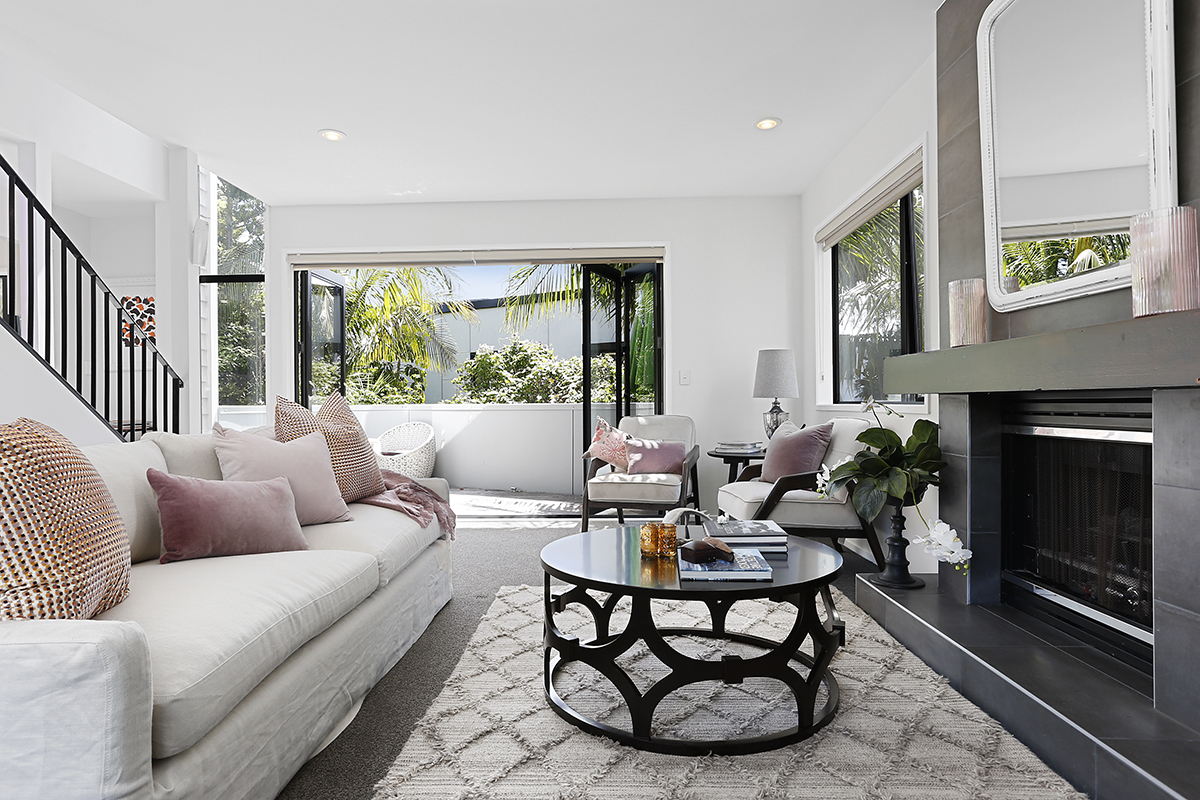Auctions
Posted on 25 OCT
Q: I am curious about auctions. Is it best to have them in rooms or on-site? And what exactly is a “vendor bid”? Danny S.
A: What a great, topical question – especially with all the talk in the media about how auction clearance rates have dropped in the past few weeks. Auctions are a very popular method of sale in Auckland and it surprises me how some agents fail to explain the process to their clients when it is so important to the sale. We almost always hold our auctions on-site. This helps in several ways: Firstly, it is all about your property – it’s not lost amongst another 20 or 30 properties. It also means that we can take as long as we need to take bids and negotiate. Did you know that can take over 40 minutes to add $100,000 to the price in bidding increments of $1,000? You don’t get that opportunity in an in-room auction where there can be a time-limit of less than 10 minutes per property. (It always amazes me that people are willing to spend just 10 minutes auctioning a property after spending so much time and money on open homes and marketing.) The extra time available with on-site auctions also gives us the opportunity to re-inforce potential buyer’s emotional attachment to the property. We open the property 30 minutes prior to the auction and have plenty of time to introduce the auctioneer and allow them to re-engage with the property as they walk around “their new home”.
A Vendor Bid is essentially a bid made by the auctioneer on behalf of the seller. It must always be announced as a Vendor Bid by the auctioneer and must always be under the reserve price. We firmly believe that vendors should be allowed to take advantage of their right to have the auctioneer to “vendor bid’ on their behalf. What it means is that the auctioneer can get auctions going and build some momentum when there is maybe just one buyer for the property. We have found that in recent times, with fewer buyers at auctions, a vendor bid is invaluable in getting the auction moving. This is borne out in our auction clearance rates: Our office clearance rates for auctions for the past 3 months is well over 85% (most, but not all, under the hammer). In terms of our own (The Stones) last 4 weeks of auctions – 5 properties – all sold under the hammer with the exception of one selling 24 hours later. All auctions are not created equal!
Q: I have been to several auctions over the past few weeks. At some auctions the auctioneer announced that he may make a bid on behalf of the vendor, while at others they didn’t mention it. What’s the story here? Don B.
A: Thanks Don. The story is that under NZ law a vendor has the right to have the auctioneer bid on their behalf at the auction – provided it is clearly announced as a ‘vendor bid’ and it is BELOW the reserve price. Our auctioneer often uses the vendor bid to get things started. Us Kiwi’s can be a little shy when it comes to auctions and the auctioneer’s request for an opening bid is often met with complete silence. The auctioneer then has the ability to place a bid on behalf of the vendor and this very often gets things underway. It’s not as useful when the market’s ‘hot’ but if not then it can be the difference between getting the property sold or having it passed in. We use the vendor bid often, to great effect: Our auction clearance rate is almost 100% (our office’s clearance rate is around the 80% mark). It is certainly a very useful tool.
Q: I am going to be bidding at auction in two week’s time. The agent selling the property has told me I need 10% deposit on the fall of the hammer, but I can’t raise it until just before the settlement date of late April. What options do I have? Sarah W.
A: Our first suggestion is to talk to the agent and explain your situation. Although auctions usually call for a 10% deposit you can ask the agent to approach the vendor with a variation allowing you to pay, for example, 5% deposit. If the vendor agrees then you are all set for auction day. In our opinion it is short-sighted for a vendor or agent to reject a lower deposit – at the end of the day we want every interested party to be at the auction and able to bid, and with property prices in Auckland the reduced deposit is usually still a significant amount. This is another reason our auction clearance rates are so high. The same thing applies to settlement dates: If the vendor’s settlement date doesn’t work for you then you can approach the agent and ask for a variation. This variation will only apply to you and no other buyers will be told.
- It frustrates me, as a buyer, that almost every home on the market in Auckland is for sale by auction. It seems really unfair to buyers, while it just keeps driving prices up for the sellers. David R.
- A common complaint from many people we meet at our open homes! “Why does everything have to go to auction?” Interestingly auction is a method of sale that has been popular for hundreds of years, not just for property but for art, wine and many other items. In fact web sites like eBay and TradeMe have made auction even more popular in more recent times and almost everything now can be bought and sold at auction. The reason for the popularity is that it is an open and transparent method of sale. There are no hidden surprises – you know the terms and the settlement date in advance, you know that you’re bidding unconditionally, you know who your competition is and you know exactly what other buyers are willing to offer. So while they may appear to favour the seller auctions really do work for the buyer too.
Q: I’m going to auction my home for sale later this year and I’ve been seeing lots of houses being sold before auction. How does a pre-auction sale work and is it a good thing to bring the auction forward? Thanks, Lily W.
A: No problem Lily. When a property is being marketed for auction, provided the agent has advertised it as “unless sold prior (USP) the agent can present a pre-auction offer to the vendor. Once an offer is presented the vendor has three options: (1) Accept the offer, sign it and it’s a done deal (2) say ‘no thank you, we will wait for the auction date’ or (3) say “yes that’s enough for me to sell’ and bring the auction forward. In this case (#3) the reserve is set at the offer figure and the auction starts with that as the opening bid, and if no higher bids are received then the property is sold at the offered price. Of course other buyers can still bid and the property will then sell to the highest bidder.
In our opinion, 99% of the time pre-auction offers only benefit the buyer. And what are those benefits? Firstly, bringing the auction forward means that less potential buyers will view the property (one or two weeks fewer open homes) so the buyer is cutting down on competition. Secondly, most pre-auction offers are not at the maximum the buyer is willing to pay. We have seen many auctions brought-forward where there has been additional bidding and the buyer that made the original offer has bid many thousands of dollars more than their first offer.
The only up-side for the seller is that they get sold earlier, and they don’t have to go through the stress of an auction where they don’t know if they are sold until the day. In our experience most vendors ultimately care more about getting a good price.
Some real estate companies have a policy to automatically bring the auction forward if an acceptable offer is received prior, but we think that it should be the vendor’s choice to decide how they want to handle the offer – it’s their property after all! We are always willing to give advice of course, but that is all it is – advice. Remember that the selling/listing agent works for the vendor, not the buyers, so always bear that in mind when talking to the agent who is selling the property.




